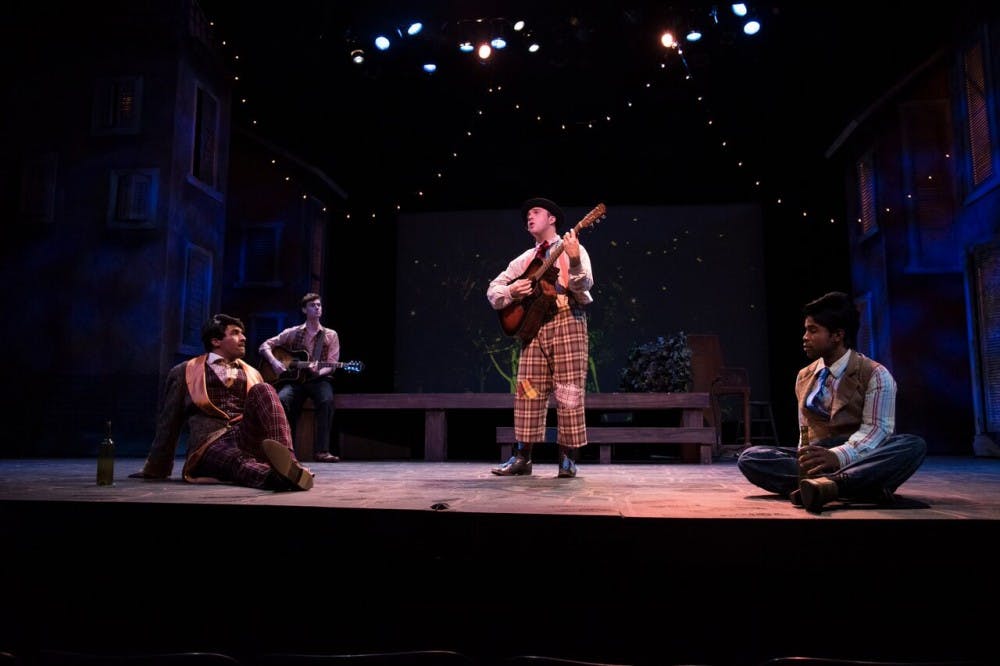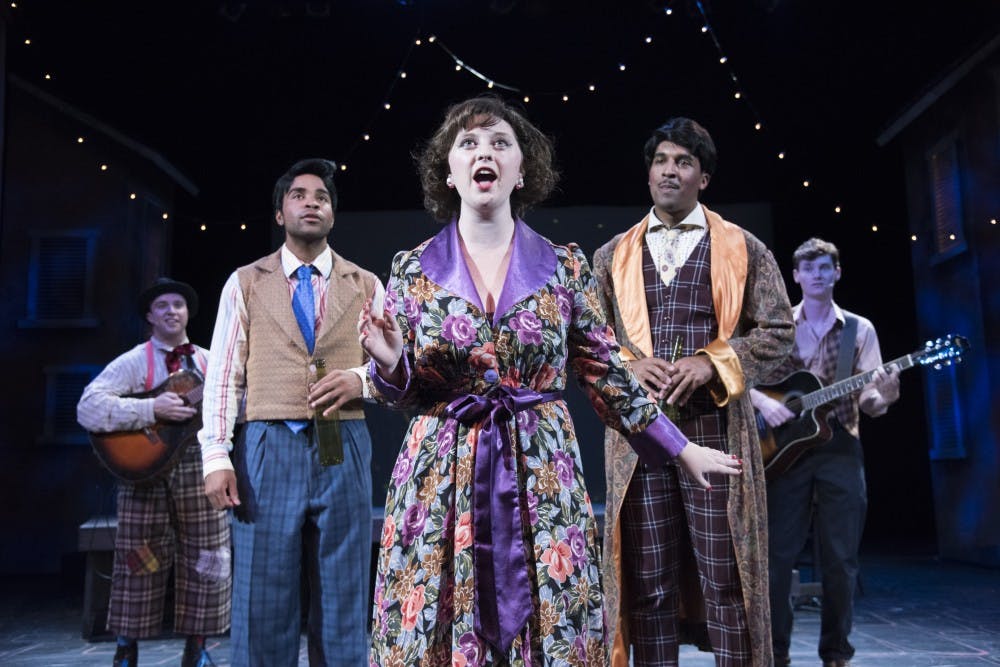In this review, I have to tackle one of the greatest challenges any creative person must face, Shakespeare. The playwright gets touted as the most important writer in the English language. Going in, I knew Shakespeare's verse was going to be a challenge in comprehension and I hoped I wouldn’t get lost. Good thing this production of Shakespeare's Twelfth Night, directed by Louis Butelli, helps the viewer understand its story through its use of expressive acting, music and modern production tools.
The story of Twelfth Night is ridiculous. Viola (Kimberly Gaughan) and Sebastian (Riley Lucas), a brother and sister duo, are separated after their boat crashes at sea. They are rescued and placed into two different towns. When Viola learns about the town’s Duke (Darrell Johnston) and his love for the beautiful Olivia (Gabriela Castillo), Viola must dress up as a man to woo Olivia for the Duke’s sake. Hilarity ensues with a cast of colorful characters, especially the eccentric and delightfully over-the-top Malvolio (Nicholas Stewart) who swings his arms in a exaggerated manner, talks with a pompous voice, and even goes insane and gets electrocuted in one of the play’s side plots. Everyone in the cast of characters is eccentric in their own way. Every actor pulls off their character well and really utilizes movement to help bring Shakespeare's verse to life. They don’t just utilize movement in the big scenes, like the exciting swordfight sequences sprinkled throughout the play, but in the smaller moments, like in the scene where the pirate, Antonio (Andy Ratcliff) pledges to protect Sebastian. His demeanor shows he’s motivated to keep Sebastian safe. Even though the Shakespearean English may be hard for me to get exactly what is being said, the scene still works because of the way our actors play it.
Not only can the actors utilize movement, but they can also play instruments well. Not one actor fakes playing their musical instrument, and this helps the play come alive. It also helps when music lies at the center of this production. Many musical numbers appear through the play’s runtime. Some soft, like in the scene where the character Viola is now dressed as a man and nearly reveals her love for the Duke. Others bombast, like in the scene where our main fool, Feste, (John Romanski) and our main musician, Fabian, (Lochlan Angle) play a song for two drunk men. These are only two examples of musical numbers, but every single number really helps the light-hearted tone of the play. While they don’t always directly affect the play's plot, they help give the play a very entertaining edge that would be lacking if they weren't there. The instruments only overstep their welcome when lines are spoken and the music drowns out the lines being recited. While the instances where this disruption exists is slight, it was an aspect of the production that I couldn’t help noticing. However, even with this disruption, I couldn’t stop myself from becoming completely entranced in the musical numbers found in the play.

The musical numbers’ success comes in part from the use of modern production, like in the instances where amplifiers are used to keep the music clear and audible. The production, even outside of the music, is well done and more minimal than I expected. When you first sit down in the theater, you notice a big projection screen upstage. I expected the play to really utilize modern technology like the projection screen. But, the projection screen is mostly relegated to helping the audience understand where the scene takes place. It provides a background and this minimal use really helped the play and wasn’t too distracting. When I saw the screen at first, I was afraid it would have too much emphasis and almost act like a crutch for the production, but it helped the play rather than hurting it. With a modern production of Shakespeare, there must be this urge to really modernize it, but the subtle use of the modern production equipment really helped the audience get invested in the old port city of Illyria, the main location of the play’s action. The restraint, along with the production’s ability to heighten the play’s comedy, really holds the whole experience together.
This production, while having a few small hiccups, really helped me realize how fun Shakespeare can be. I was daunted, at first, by what little of Shakespeare I read, but that all went away when the bright music and delightful acting sucked me into the play. Every actor pulled off their characters well and the music still sticks in my brain. In this production, the greatest success a production of Shakespeare can have gets pulled off: memorability.



